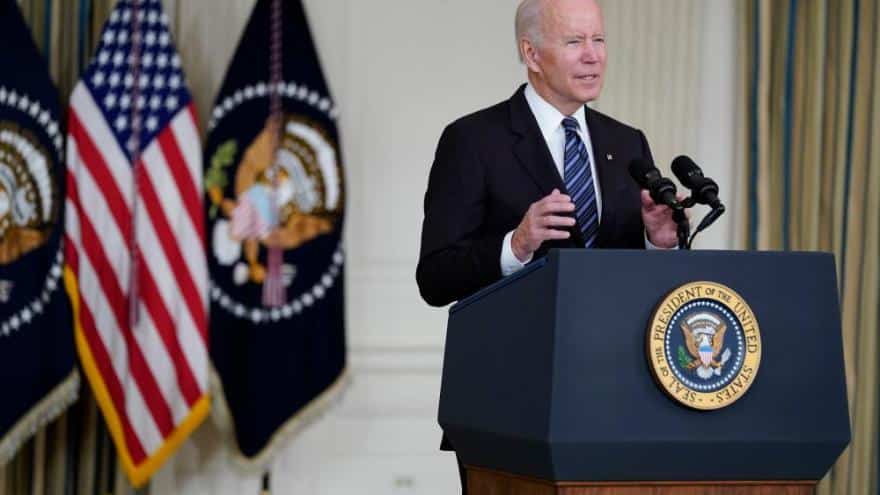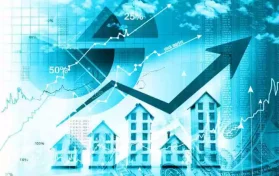
On Friday, Biden acknowledged public concern regarding rapidly rising inflation; consumers are paying more for necessities from gas to milk to eggs. Plus, with winter fast approaching, those using natural gas to heat their homes are facing a 250 percent increase in cost compared to last year’s prices.
President Joe Biden admitted that the White House needed to address the issue. He acknowledged that the substantial increase in everyday goods is squeezing American families, and he urged Congress to pass his sweeping economic agenda, the Build Back Better plan, which Biden suggested would provide a means of stomping the recent spike in prices.
While the infrastructure bill did pass on Friday night, Biden attempted to downplay concerns that the Build Back Better bill would contribute to even more inflation, which is causing the huge increases in consumer prices. Biden stated that the bipartisan $1.2 trillion infrastructure bill will actually drive prices lower.
He argued the Build Back Better bill will do the same.
In his remarks at the White House on Friday, Biden said, “There’s a lot more work to be done. We still have to tackle the costs that American families are facing. This recovery is faster, stronger, fairer and wider than almost anyone could have predicted. But, we want to make sure people continue to feel it in their lives.”
Many more moderate Democrats in the House have requested that there be no vote on the Build Back Better bill until the CBO (Congressional Budget Office) could provide some numerical data regarding future costs of the Build Back Better agenda. Opponents of the spending plan, set to cost $1.75 trillion initially) could grow to a total spending of more than $7 trillion over time. These same individuals, including Joe Manchin (D- WV), believe that the Build Back Better agenda is irresponsible spending.
Using statistics from the October jobs report, Biden pointed to a rebound in job growth and the declining unemployment rate as evidence that his economic policies are prudent – and that they’re working.
According to the Labor Department, employers added 531,000 jobs in October. Most of these jobs were in the leisure and hospitality industry. The actual number of jobs added exceeded Wall Street’s expected 450,000 added jobs. The unemployment rate fell from 4.8 percent in September to 4.6 percent in October. However, it’s important to remember that pre-pandemic unemployment was a steady 3.5 percent.
Biden pointed to the passing of the American Rescue Plan earlier this year. “Before we passed (the American Rescue Act) (economic) forecasters said it would take until the end of 2023 to get to the 4.5 unemployment rate. Today, we’ve reached that rate two years before forecasters thought it was possible.”
The jobs report came as the Biden Administration and Democrats in general were experiencing a rather dismal week. On Tuesday, Virginia elected political newcomer Glenn Youngkin as governor in a resounding victory; they also elected Republican Winsome Sears to the Lieutenant Governor position. While some believe this election was a bellwether on government intervention in the lives of families, Youngkin and Sears ran on a platform that would provide lower taxes for families as well as changes to taxes on everyday essentials in Virginia. In addition, Americans polled recently spoke to their concerns regarding the economy. According to a recent Fox News poll, 9 out of 10 Americans is worried about inflation. Furthermore, President Biden’s approval rating ahead of the November 2 election was a dismal 39 percent.
To date, inflation as it is gauged by the Federal Reserve is at an all-time high since 1991. Fed Chairman Jerome Powell has remarked that the inflation is “transitory,” and should “cool” by mid-2022.
The Biden Administration has repeatedly blamed the inflation on supply chain “bottlenecks” as well as “pandemic-induced shortages.” However, he denies any idea that wage pressure from a tight labor market is what is actually causing the rapidly rising inflation.





